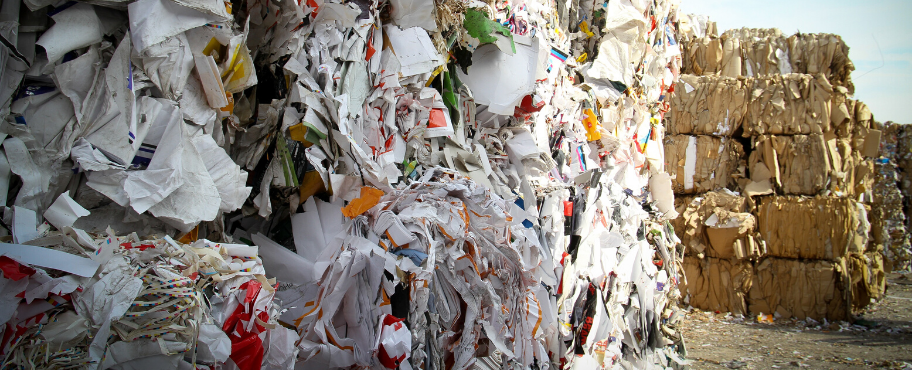Each year South Africa only recycles approximately 10% of its waste, with the remaining 90%, which equates to in excess of 50 million tons being disposed at landfill. As a further aggravating factor, many of the 1336 landfills are reaching maximum capacity with the average lifespan for example in the Western Cape being 5 years, and the City of Johannesburg 6 years. A further challenge is also faced by the health risk faced by many “waste pickers” from the informal sector who recover recyclables, some of which is infected with Covid 19, at a majority of Municipal landfills.
Despite current challenges, the strategic goals that were established in 2019 by the National Waste Management Strategy (NWMS) remain as follows;
Prevent waste, and where waste cannot be prevented, divert 50% of waste from landfill within 5 years; 65% within 10 years; and at least 80% of waste within 15 years through reuse, recycling, and recovery and alternative waste treatment.
It is clearly apparent that significant changes to current waste management practices will urgently need to be implemented if any meaningful improvement in disposal rates towards the ambitious targets that have been set, will be achieved.
The road to “zero waste”
In line with current International best practice, South Africa is embarking on the goal towards “zero waste to landfill” as evidenced in the 2019 NWMS diversion goals.
The emphasis on zero waste should not hinge on ‘zero’, but rather on the journey of moving towards it. As one Waste Dive article puts it, “We call it 'zero waste or darn near’. It's about always trying to get better and move closer to zero, and we don't fixate on the zero aspect of it.”
So with this in mind, we have a look at what is happening in South Africa and around the world within the zero waste to landfill management space. Here’s where the conversation currently lands:
Zero Waste Compliance
In order to drive behavioural change and establish new industry standards, the South African government is constantly adapting its legislation to limit the impending waste crisis. As part of the revised legislation, a range of waste streams may no longer be disposed at landfill including all forms of liquid waste, recyclable waste oils, tyres, lamps, lead acid batteries and hazardous waste with a calorific value of >20MJ/kg, as of August 2019. Further bans are pending such as that in the Western Cape, where 50% of organic waste must be diverted by 2022, and 100% by 2027.
In addition, new laws like the Carbon Tax Bill will fast-track the shift to low carbon activities and incentivise greener investments. New regulations like these are forcing the hand of businesses to make the necessary change and position themselves to take innovative steps towards sustainable alternatives.
Digitised Waste Management
The costs of waste management are only going up, and regulations are bound to get stricter, so our businesses need accountability measures to suit the times. Data analytics are able to offer in-depth insight of your waste activities. Advisory specialists like Wasteplan provide real-time reporting and tracking services to ensure that you have your finger on the pulse on your progress in the achievement of sustainability milestones.
Of course the 4th Industrial automation era that we are now in, brings with it the possibilities of real cost-savings and improved efficiencies to your waste management processes. Although contrary to South African labour employment goals, a robotic recycling revolution is underway in many parts of the world and only gaining ground as a viable alternative to a human-based labour market. In addition, driverless and semi-driverless waste collection vehicles are also entering the market overseas, and many waste-to-energy processes can be more easily optimised.
South Africa is still behind the automation curve, but is definitely looking into some of these options, especially when it comes to small adaptive innovations that can bring positive change.
Beneficiation of Waste
Organisations that are best positioned to profit in the future, are those who can differentiate and recognise the value of their waste streams. This need is ably met by Wasteplan who is passionate about helping our clients to reduce waste, and also recognise waste as a resource.
The pending ban of organic waste to landfill in the Western Cape will act as forced stimulation for the establishment of alternative waste treatment processes such as those that turn your food waste into composting or Anaerobic digestion, or Insect bioconversion.
Proactive Waste Management
Up until now, businesses could fly under the regulation radar and apply a retroactive band-aid approach to bad ecological behaviour. But going forward, the new normal will require high levels of accountability and compliance to ever-changing regulations. Organisations are going to have to think outside-the-box like never before, and adopt the technologies and innovations that will build resilience.
And of course, businesses need to up their recycling appetites to include less-than-obvious market opportunities. E-waste and scrap metal provide a great recycling niche; upcycling can also save you money and inspire reinvention. There are loads of examples of companies around the world who are getting it right and moving towards zero waste. In the South African space, companies like Coca-Cola are growing PET collection rates from single digits in the early 2000s to 65% today, putting it on a par with international standards.
So all in all, the zero waste movement is well underway - and South Africa stands to be caught up in the momentum. More stringent legislations and growing global commitments will keep the pressure on SA business. But the possibilities for creative, cost-saving waste alternatives are many. It’s all about who has the eyes to see it and step out into the gap.
Interested to join the conversation and explore your waste management options this year? Subscribe to the blog and sign up for monthly updates.





